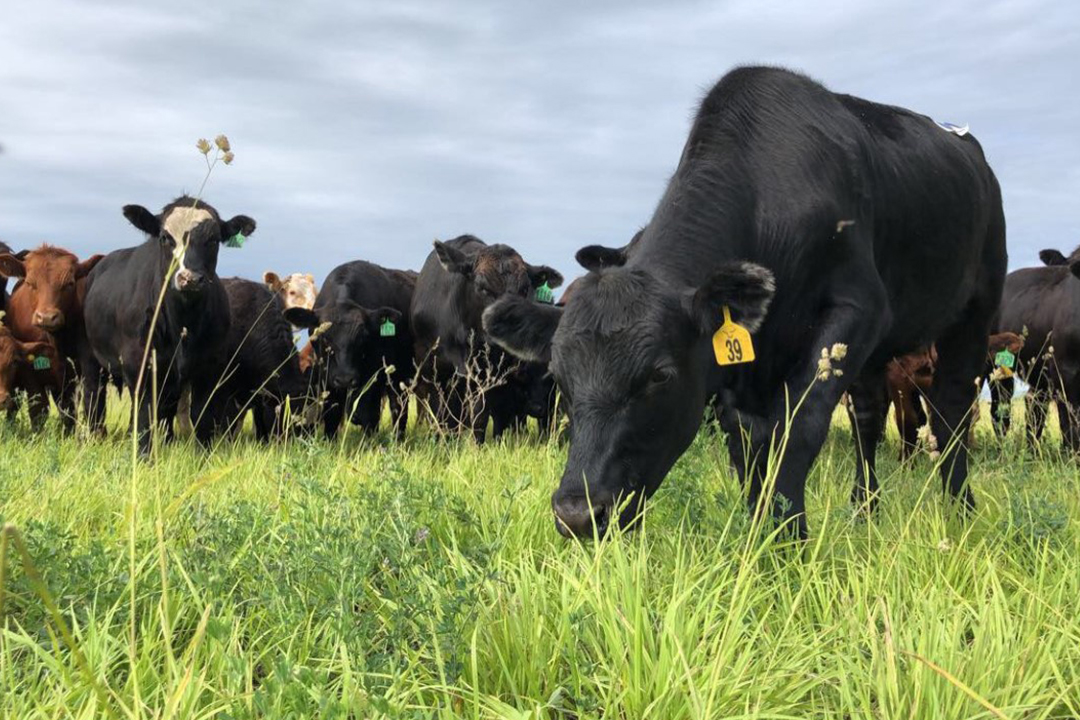
New USask chair will focus on forage crops
The University of Saskatchewan's (USask) new Beef Industry Integrated Forage Management and Utilization Chair will connect the study of soils, plants, animals, economics and ecosystems to tap into forage crops’ full range of benefits.
“The chair will help to address concerns raised for a number of years by producers searching for expanded forage management information,” said Matt Bowman, chair of the Beef Cattle Research Council (BCRC) and a producer from Thornloe, Ont.
“We need the science in order to better manage complex forage systems, implement effective utilization strategies, and understand the associated environmental benefits created through the dynamic soil-plant-animal interface.”
Funding for the research chair will be provided from a variety of sources. Industry contributions include $2.5 million from the Beef Cattle Research Council (BCRC) and $1 million from the Saskatchewan Cattlemen’s Association (SCA). The governments of Canada and Saskatchewan will provide $750,000 through the Canadian Agricultural Partnership, and the Global Institute for Food Security (GIFS) at USask will contribute $320,000.
“The role of rangeland and forages in our ecosystem cannot be taken for granted,” said Marie-Claude Bibeau, federal minister of Agriculture and Agri-Food. “Rangeland plants increase the resilience of the ecosystem and create natural benefits such as carbon sequestration and soil stabilization, as well as for pollinators. This new research chair position will help further our understanding in these areas.”
“This research chair will work with partners from across the province to develop practical tools for producers,” said David Marit, minister of Saskatchewan's Ministry of Agriculture. “This investment will help grow the livestock sector and bring us closer to achieving the goals outlined in Saskatchewan’s Plan for Growth, including our target to increase livestock cash receipts to $3 billion.”
A 2012 assessment concluded lack of research and development investment in the Canadian forage industry meant advances in forage had not kept pace with developments in other crops. The beef and cattle industry is increasingly seeing forages as a high-value feed source.
“Saskatchewan is looking to increase crop production and livestock cash receipts as a means of economic growth. This new chair will create momentum to meet this objective, and support the agricultural industry worldwide,” said Dr. Baljit Singh, USask vice-president research. “Strengthening this sector and bolstering food security is a focus of USask as we provide research the world needs.”
There’s growing recognition that forage crops play a critical role in nutrient cycling and carbon sequestration as well as promoting biodiversity and protecting wildlife habitat. The livestock industry believes the value of these environmental and ecological benefits complement forages’ economic impact.
“Forage production and utilization is the foundation of beef cattle productivity and competitiveness,” said Arnold Balicki, chair of the Saskatchewan Cattlemen’s Association. “After years of advocacy it is gratifying to see this position created via partnership between producers, government, USask and GIFS.”
The new research chair will be located in the USask College of Agriculture and Bioresources as a joint appointment between the Department of Plant Sciences and Department of Animal and Poultry Science. Among the chair's key roles will be to ensure USask is at the leading edge of research on the use of forage in the beef industry, to connect expertise in the field locally, nationally and internationally, and to grow funding support for research.
“This is a great opportunity for GIFS and the Plant Phenotyping and Imaging Research Centre program that we manage on behalf of USask, as it gives us the opportunity to work together with partners — government, industry and USask’s College of Agriculture and Bioresources — to deliver value to the agriculture and food sectors,” said Steven Webb, chief executive officer of GIFS.
“This collaboration will help us advance the sectors in a manner that is economically, environmentally and socially sustainable.”
The international search will begin this summer and USask anticipates filling the position before the end of 2021.
The Canadian Agricultural Partnership is a five-year, $3-billion investment by Canada’s federal, provincial and territorial governments to strengthen and grow Canada’s agri-food and agri-products sectors. This commitment includes $2 billion for programs cost-shared by the federal and provincial/territorial governments that are designed and delivered by provinces and territories.
